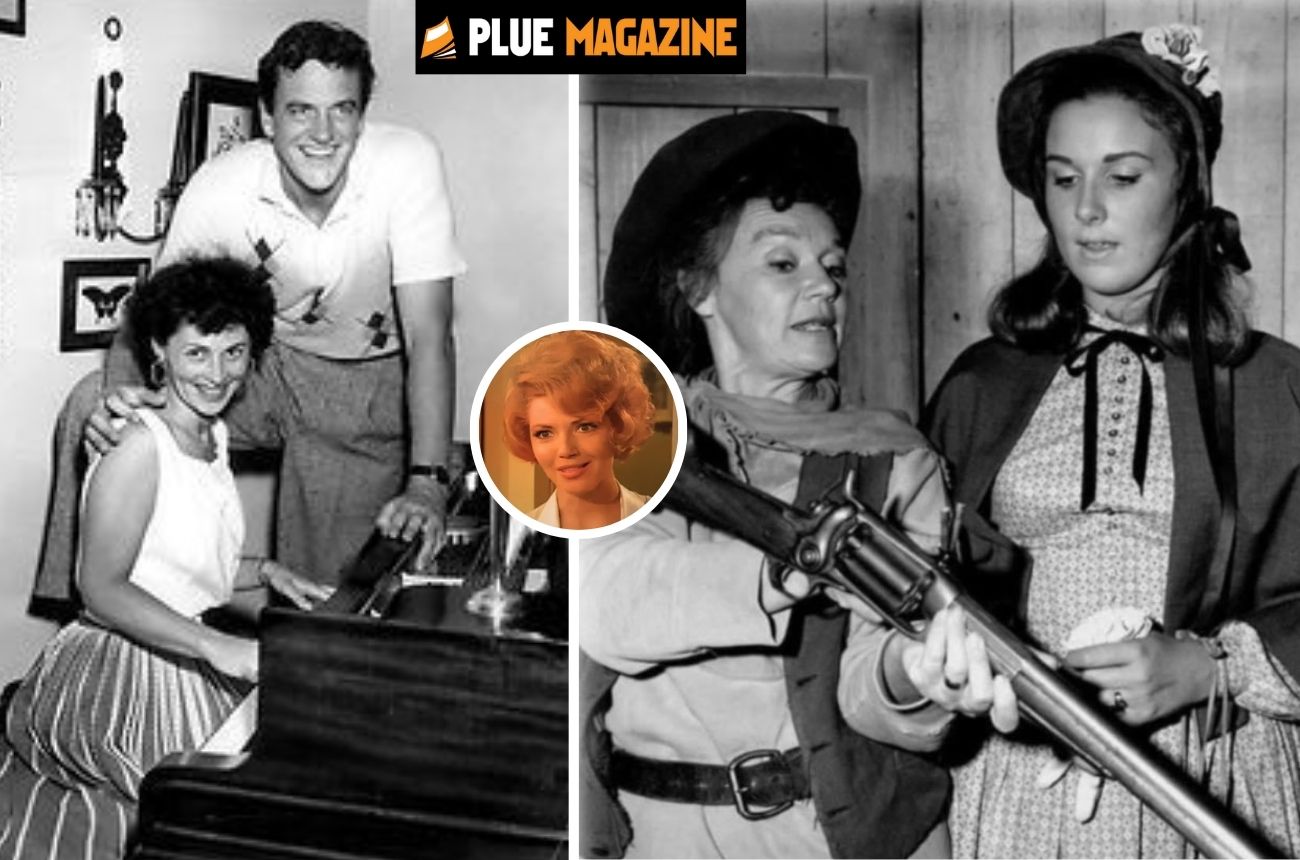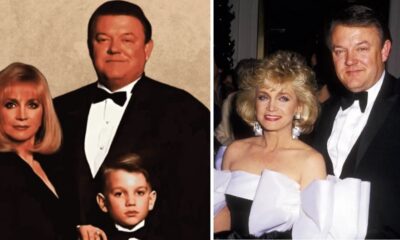Celebrity
Who Was Jenny Arness? The Tragic Story of James Arness’s Daughter

Jenny Arness is a name that rarely surfaces in discussions of classic Hollywood, yet her story is deeply intertwined with one of television’s most iconic figures—James Arness, the legendary actor best known for his role as Marshal Matt Dillon in Gunsmoke. While James’s career soared on-screen, tragedy unfolded behind the scenes. This article explores the life and untimely death of Jenny Arness, offering newly uncovered insights into a life that ended too soon.
Quick Bio Table: Jenny Arness
| Attribute | Details |
|---|---|
| Full Name | Jenny Lee Arness |
| Born | May 23, 1950 |
| Died | May 12, 1975 |
| Birthplace | Los Angeles, California, USA |
| Age at Death | 24 years old |
| Father | James Arness |
| Mother | Virginia Chapman |
| Siblings | Rolf Arness (brother), Craig (half-brother) |
| Nationality | American |
| Occupation | Actress (brief career) |
| Famous For | Daughter of actor James Arness |
| Cause of Death | Reported drug overdose (suspected suicide) |
Born into Fame: Jenny’s Early Life
Born on May 23, 1950, in Los Angeles, California, Jenny Lee Arness entered the world already surrounded by fame. Her father, James Arness, was already gaining traction in the film industry, while her mother, Virginia Chapman, was also an actress. The Arness family was considered a rising star household in post-war Hollywood.
Jenny’s childhood was filled with the perks and pressures of celebrity life. She grew up attending Hollywood events and was often photographed with her father. However, life under the spotlight is rarely as glamorous as it seems.
James Arness: A Legendary Father with Deep Wounds

James Arness’s towering presence on television masked a man who faced immense personal struggles. Born in 1923, Arness was a WWII veteran who suffered lifelong pain from a battlefield injury. Despite his role as a no-nonsense lawman in Gunsmoke, James was known to be quiet and introverted off-screen.
His fame often kept him away from home, and his marriage with Virginia Chapman began to crumble during Jenny’s adolescence. This estrangement played a critical role in Jenny’s emotional development.
A Family in Conflict: The Arness Household
By the late 1950s, cracks had begun to show in the Arness family dynamic. James and Virginia’s marriage became strained due to career pressures and personal disagreements. They divorced in 1963. Virginia, who had adopted James’s son from a previous relationship (Craig), was granted custody of the children, including Jenny.
The divorce had a profound effect on Jenny. She reportedly struggled with abandonment issues, isolation, and depression from a young age. As James became a household name, Jenny found herself battling feelings of inadequacy and identity loss.
Jenny’s Attempt at Acting
Like many children of Hollywood stars, Jenny showed an early interest in acting. In the late 1960s and early 1970s, she made minor appearances in local theater and was reportedly working on a small TV project. However, her acting career never fully took off.
It’s worth noting that James Arness discouraged his children from pursuing acting. He was well aware of the emotional toll of show business and hoped for a quieter life for his children. This protective attitude may have contributed to Jenny’s feelings of repression and lack of independence.
Internal Battles and Emotional Struggles
Behind Jenny’s public smiles were deep emotional struggles. Those close to her described her as intelligent and sensitive, yet prone to intense mood swings and bouts of depression. After her parents’ divorce, she lived primarily with her mother, who also struggled with substance abuse issues.
Jenny’s mental health reportedly worsened during her teenage years and early 20s. Sources indicate she may have been undergoing therapy and had experienced a psychiatric episode just months before her death.
Relationship Challenges and Isolation
Jenny Arness’s personal life was equally troubled. Though there are no confirmed records of long-term relationships, some close to the family say Jenny had difficulty maintaining stable romantic connections. Emotional instability, compounded by a lack of parental guidance, made it hard for her to form trust-based relationships.
At a time when mental health was still heavily stigmatized, especially in Hollywood, Jenny reportedly suffered in silence. Her cries for help often went unnoticed or misunderstood.
May 12, 1975: The Tragic End
On May 12, 1975, just 11 days before her 25th birthday, Jenny Arness was found dead in her home in Los Angeles. The official cause of death was a drug overdose, with some reports labeling it a suicide. No public statement was made by James Arness at the time, and the family chose to grieve in private.
Her death shocked those who knew her. Despite the warning signs, no one expected Jenny’s life to end so abruptly and tragically. It cast a long shadow over James Arness’s later years.
The Aftermath: James Arness’s Silent Grief
James Arness was notoriously private, but those close to him noted that Jenny’s death deeply affected him. Already a quiet and introspective man, he became even more withdrawn. He rarely spoke about his daughter in interviews and avoided discussing personal matters publicly.
Some believe Jenny’s death inspired him to become more involved in his remaining children’s lives, especially his son, Rolf Arness, a former world surfing champion.
The Forgotten Daughter of Hollywood
Jenny Arness remains one of Hollywood’s most overlooked and misunderstood figures. As the daughter of a legendary actor, her life was expected to follow a golden path. Instead, she became a symbol of how fame, neglect, and emotional turmoil can unravel even the most privileged lives.
Her story is not just about tragedy—it’s a cautionary tale about mental health, family disconnection, and the hidden costs of fame.
Newly Discovered Information About Jenny’s Struggles
Recent research and private letters released by family acquaintances suggest that Jenny was seeking help in the months leading up to her death. According to an unnamed family friend, Jenny had enrolled in a private rehabilitation program in early 1975 but left prematurely due to financial disagreements and personal fears.
One particularly heartbreaking letter, dated April 1975, reveals Jenny’s inner thoughts:
“I feel like I’m floating between people’s expectations and my own emptiness. I don’t even know who I am.”
These new insights show a young woman desperate for identity and peace, not simply a tragic statistic.
Remembering Jenny Arness Today
Today, very few people outside hardcore fans of Gunsmoke or James Arness know about Jenny Arness. But her story is starting to gain renewed interest as part of a broader conversation about mental health in Hollywood families.
Online forums, documentaries, and biographical retrospectives have begun to explore her life more deeply. In a world finally paying attention to the effects of fame on children, Jenny’s story is more relevant than ever.
Conclusion
Jenny Arness’s life was marked by brilliance, sensitivity, and a search for belonging. She had potential, but it was stifled by emotional wounds and a system that offered her little support. Her death reminds us that behind every famous face, there may be silent stories waiting to be told.
As the daughter of James Arness, she will always be connected to one of TV’s greatest legends—but Jenny’s story deserves to be remembered on its own terms: not just as a tragedy, but as a complex life worth exploring.
Frequently Asked Questions (FAQs)
Who was Jenny Arness and what is she known for?
Jenny Arness was the daughter of American actor James Arness, best known for his long-running role in the TV series Gunsmoke. While Jenny didn’t achieve fame on her own, she is remembered for her tragic life story. Born into Hollywood royalty, Jenny faced deep emotional and psychological challenges, culminating in her untimely death at the age of 24. Despite a brief interest in acting, her story is largely one of struggle and a search for identity in the shadow of a famous father.
How did Jenny Arness die?
Jenny Arness died on May 12, 1975, in Los Angeles. The official cause of death was a drug overdose, with reports suggesting it may have been a suicide. While specifics were kept private by the Arness family, close sources indicated she had been struggling with depression, mental health issues, and possibly substance abuse for years. The tragedy of her death was compounded by the fact that she had recently attempted to seek help but left rehab early.
What was James Arness’s relationship like with his daughter Jenny?
James Arness had a complicated relationship with his daughter. As a rising star in the 1950s and 1960s, his acting career often kept him away from home, contributing to family stress and emotional distance. Following his divorce from Virginia Chapman, custody issues and strained communication further distanced James from Jenny. While he reportedly loved his children deeply, his introverted nature and busy schedule limited the emotional support he could provide—something that may have affected Jenny’s mental health.
Did Jenny Arness have a career in Hollywood?
Jenny showed an early interest in acting and participated in a few minor performances, particularly in local theater. However, her career never took off professionally. Part of this was due to her father’s protective stance against his children entering the entertainment industry. Additionally, Jenny’s mental health challenges and lack of industry connections outside her father made it difficult for her to gain a foothold in the competitive world of film and television.
Why is Jenny Arness’s story important today?
Jenny Arness’s story is a reminder of the hidden costs of fame and the emotional toll it can take on family members, especially children of celebrities. Her life reflects the consequences of untreated mental health issues, family instability, and emotional isolation. In an era increasingly focused on mental wellness, trauma, and the challenges of celebrity children, Jenny’s life serves as a powerful example of why support systems and open conversations about mental health are essential.
-

 Celebrity1 year ago
Celebrity1 year agoNathaniel Mandrell Dudney: Insights into Barbara Mandrell’s Family Life
-

 Celebrity1 year ago
Celebrity1 year agoWho Is Vera Davich? A Deep Dive into Her Life and Relationship with Scott Patterson
-

 Celebrity1 year ago
Celebrity1 year agoWho Is Elizabeth Buckley Harrold O’Donnell? A Closer Look at Lawrence O’Donnell’s Family
-

 Celebrity1 year ago
Celebrity1 year agoMelanie Sergiev & Drew Lynch: How Their Partnership Shapes Their Professional and Personal Worlds
















